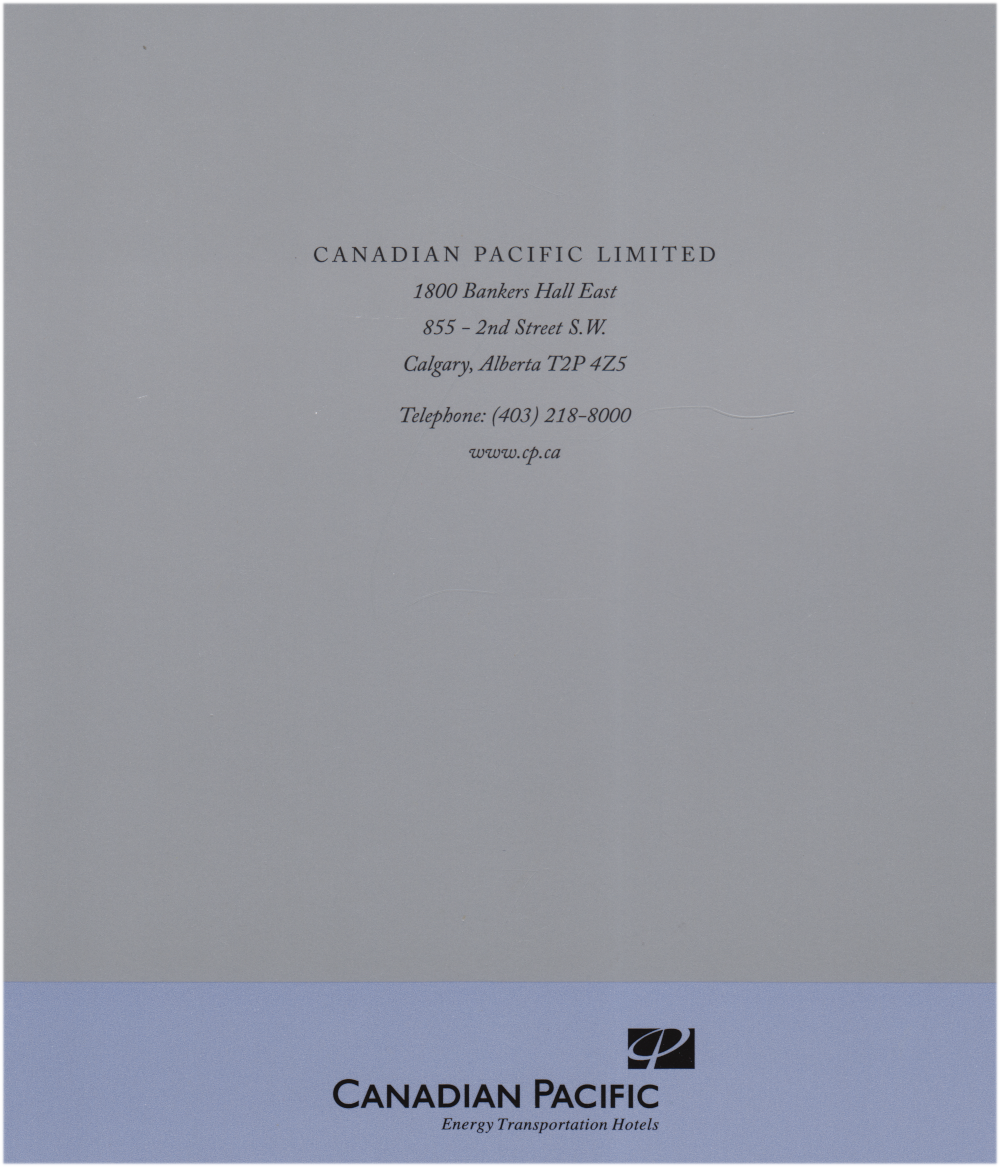Most CEOs LOVE this time of year.
It's Annual Report Season!
Soon shareholders will be invited to dilute their shares and decrease their net earnings ... through rich grants of stock options (regulators once thought that stock options didn't cost anything!), and generous executive pay and perquisites for company officers.
The executives get very wealthy on our capital.
* * *
Unintentionally, while growing up, I was trained to believe that every railway artifact was an artifact for preservation. (I unlearned this the hard way - while working as a volunteer at a railway museum.) Unintentionally, I became a collector of Canadian Pacific annual reports.
I have tried to find a few interesting bits from a few of them. As someone recently observed - when something gets old enough, it becomes interesting.
Annual reports existed to provide audited financial statements (always read the footnotes!), and Management's Discussion and Analysis, to shareholders. With the development of algorithmic trading and Exchange Traded Funds, few people today probably use old-fashioned paper documents in this old-fashioned way.
If you would like to see and save PDF annual reports for Canadian issuers (including the CPR) you can find them at the website below. The website itself is historically beautiful because it has not changed in format or function since it went on line over 20 years ago! It is the VIA 6300 of financial websites.
System for Electronic Document Analysis and Retrieval (SEDAR)
https://www.sedar.com/homepage_en.htm
Documents for:
Canadian Pacific Railway Company
* * *
Canadian Pacific Limited was the first stock I owned and the 1997 annual report came from the first Annual General Meeting I ever attended. It was held at the CP Royal York, the food was great, and they had a diesel locomotive simulator set up in a neighbouring room.
In general, all AGMs are as slick as annual report cover. Non-management Shareholder Proposals are dispatched quicker than a silk train.
Here are a few historically interesting pages from the 1997 document ... the oil price assumptions are particularly interesting.
Below, considering only US $ inflation, US $24.47 oil in 1997 is equivalent to USD $39.33 oil in 2020.
* * *
1998 Annual Report
* * *
1999 Annual Report
The 1998 back cover addresses (above) the 1999 address (below).
"Out west is where the customers are!"
Linked to his periodic re-introduction of replays of the CBC/NFB series The National Dream, it was shocking (on one occasion) to hear Pierre Berton candidly state that he had never liked railways. He was probably referring to their activities and behaviour as big corporations. One could argue that the Hudson's Bay Company was a large organization which adapted slightly more to the indigenous cultural reality in Canada to conduct its business.
On Ken Finkleman's 1996-2005 series The Newsroom, a resourceful intern dealing with a phone complaint, dismissed a bit of her boss's aberrant and intolerant behaviour by stating "He's just at that age where he believes everything he reads in The Globe and Mail".
On March 3, 2020, The Globe and Mail printed an article titled:
‘The railways got very wealthy on our land’: How rail’s colonial past made it a target for blockades.
For the very few people who may find this post in the future ...
The article above referred to what Wikipedia is today calling:
2020 Canadian pipeline and railway protests
The blockades exposed general journalistic ignorance of the extent of Canada's railway network and the resources of the Canadian Railway Association. Many people have no conception of the inertia associated with moving freight trains (the engineer is not trying to run over people who suddenly jump in front of the train to rock-test the FRA Type 1 glazing). And the events made even casual news observers aware of concepts such as Turtle Island, settler culture and unceded lands.
Historiography is a fascinating area of study.
... For those who have recently enjoyed the opportunity to learn more about indigenous history ... the assumed wholesomeness of the story from 1999 (below) comes from another time and another historical voice.
It comes from the type of Canadian corporation that even Pierre Berton could not love unconditionally.
Map above: The railway has already forgotten where Montreal is!





















